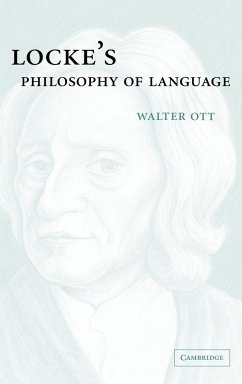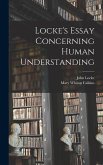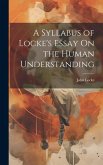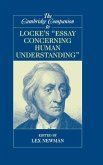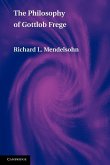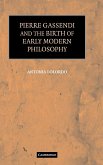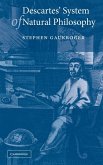Examines John Locke's claims about the nature and workings of language.
This book examines John Locke's claims about the nature and workings of language. Walter Ott proposes an interpretation of Locke's thesis in which words signify ideas in the mind of the speaker, and argues that rather than employing such notions as sense or reference, Locke relies on an ancient tradition that understands signification as reliable indication. He then uses this interpretation to explain crucial areas of Locke's metaphysics and epistemology, including essence, abstraction, knowledge and mental representation. His discussion challenges many of the orthodox readings of Locke, and will be of interest to historians of philosophy and philosophers of language alike.
Table of content:
Acknowledgements; Note on textual references; Introduction; 1. Signs and signification; 2. Particles and propositions; 3. Essence and abstraction; 4. Locke contra the Aristotelians: signification and definition; 5. Beyond the bounds of sense?; 6. The reception of Locke's philosophy of language; 7. Conclusion; Bibliography; Index.
This book examines John Locke's claims about the nature and workings of language. Walter Ott proposes an interpretation of Locke's thesis in which words signify ideas in the mind of the speaker, and argues that rather than employing such notions as sense or reference, Locke relies on an ancient tradition that understands signification as reliable indication. He then uses this interpretation to explain crucial areas of Locke's metaphysics and epistemology, including essence, abstraction, knowledge and mental representation. His discussion challenges many of the orthodox readings of Locke, and will be of interest to historians of philosophy and philosophers of language alike.
Table of content:
Acknowledgements; Note on textual references; Introduction; 1. Signs and signification; 2. Particles and propositions; 3. Essence and abstraction; 4. Locke contra the Aristotelians: signification and definition; 5. Beyond the bounds of sense?; 6. The reception of Locke's philosophy of language; 7. Conclusion; Bibliography; Index.

